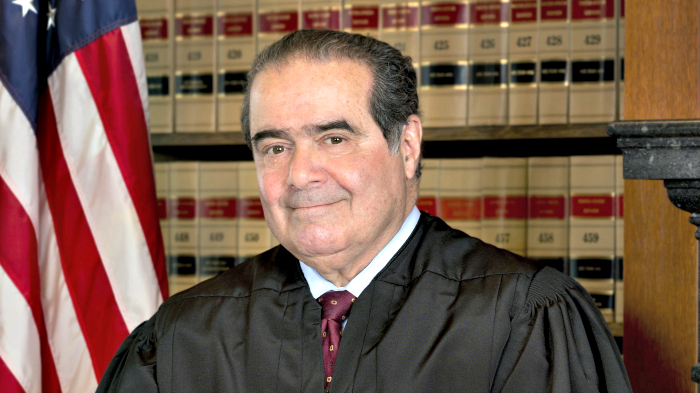For the first time in nearly three decades, the Supreme Court began its session without Justice Antoin Scalia. He will be sorely missed for many important reasons, including his consistent adherence to and strong articulation of the true role of the Court, not in enacting someone’s preference, but in carefully interpreting the law as it is written
In 1973, seven Supreme Court justices substituted their own views on abortion for the laws on the books in most states. They somehow discovered a right to abortion in the U.S. Constitution. This was not the way of Antonin Scalia. Scalia hated abortion. But, as The Wall Street Journal’s Peggy Noonan says, “Scalia famously didn’t think his preferences were the issue; what the law says is the issue.”
In 1992, in Planned Parenthood vs. Casey, the Court had a chance to reverse Roe vs. Wade. Instead, the Court reaffirmed Roe for the ages. A dissenting Justice Scalia wrote of the decision: “Its length, and what might be called its epic tone suggest that its authors believe they are bringing to an end a troublesome era in the history of our Nation and of our Court.” He continued, “by foreclosing all democratic outlet for the deep passions this issue arouses, by banishing the issue from the political forum that gives all participants, even the losers, the satisfaction of a fair hearing and an honest fight, by continuing the imposition of a rigid national rule instead of allowing for regional differences, the Court merely prolongs and intensifies the anguish.”
The Casey decision did allow states to place certain restrictions on abortion. They have been doing so; over 300 have passed state houses since 2010. And they are often challenged. The first abortion-related case in nearly a decade is now before the Supreme Court. It is Whole Woman’s Health vs. Cole. Whole Women’s Health is a chain of abortion clinics. At issue are two provisions of a 2013 Texas law. One mandates that abortion clinics meet the standards that apply to other ambulatory surgical health-care facilities in the state.
Also under review is a provision that requires doctors performing abortions to obtain admitting privileges at local hospitals. This provides continuity of care in case of emergency. Both of these are common sense measures aimed at protecting women.
Justice Scalia’s presence on the Court would have meant 5 to 4 or even 6-3 votes of the justices upholding these measures. Even without Scalia, the law will likely still be upheld because a 4-4 tie will allow the lower court’s decision to stand.
Now, to Scalia’s replacement. The Journal’s William McGurn says that, in the nominating process, the nation should be asking a question of character: “Does a nominee for the nation’s highest court have the integrity to resist the temptation a lifetime office offers to substitute his own predilections for the law?” In considering justices, the answer should be yes.
 Listen Online
Listen Online Watch Online
Watch Online Find a Station in Your Area
Find a Station in Your Area











 Listen Now
Listen Now Watch Online
Watch Online
